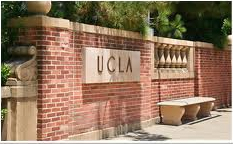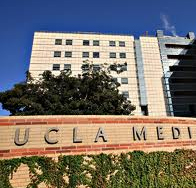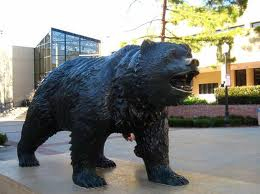In the News
Editing Dystrophin Genes to Treat DMD
Read more at: http://quest.mda.org/series/gene-therapy-next-generation/editing-dystrophin-genes-treat-dmdResearcher Carmen Bertoni is using DNA-like material to fix flawed genes
Carmen Bertoni says gene editing has the potential, when optimized, to "completely cure the disease."Article Highlights:
- Bertoni is experimenting with a gene-editing strategy that involves laboratory-engineered compounds that resemble DNA and stick to dystrophin genes, where they can trigger a cellular editing mechanism called mismatch repair.
- The gene-editing approach is working in mice with a mutation in the dystrophin gene, but Bertoni says the level of correction needs to be improved before the strategy can be tested in patients with Duchenne muscular dystrophy.
- Bertoni’s current MDA funding involves correcting dystrophin genes in muscle stem cells to provide a continuing supply of muscle repair kits.
- This article is part of the Quest series titled Gene Therapy: The Next Generation (see below for the other stories included in the special package).
BY MARGARET WAHL ON JANUARY 9, 2014 - 9:19AM
DMD — Carmen Bertoni, Ph.D.
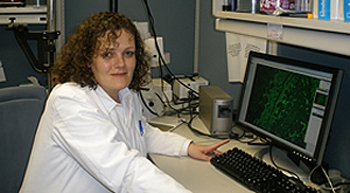
Carmen Bertoni, Ph.D., focuses on studying gene-editing strategies for DMD.
Duchenne Muscular Dystrophy (DMD)
Carmen Bertoni, assistant professor of neurology at the University of California, Los Angeles, was awarded an MDA research grant totaling $300,000 over a period of three years to advance gene-editing strategies forDuchenne muscular dystrophy (DMD).
DMD is caused by a mutation in the dystrophin gene. Standard gene therapy techniques have focused on supplying an unmutated dystrophin gene to muscle cells. An alternative strategy, called gene editing, seeks to correct the mutant gene itself.
“Our research group [with MDA funding] has pioneered the use of gene editing strategies for the dystrophin gene to permanently correct the DNA,” Bertoni says.
The gene-editing toolkit is growing, and in this project, Bertoni will compare the correction efficiency of two different methods. Both specifically target the mutant sequence in the gene, and harness elements of the cell’s own “quality control” system to correct the mutation. The comparison will be performed first using muscle cells isolated from a mouse model for DMD, and then in the mice themselves, to determine the feasibility of using this technology in people.
The repair process is simple to describe, but complicated in practice. The therapy needs to reach many different muscle fibers, cross the dense and protective structure that surrounds every fiber, reach the cell nuclei and ultimately the dystrophin gene, and then direct the gene correction process. Finally, the amount of dystrophin expression achieved after correction needs to be sufficient to sustain muscle function over a prolonged period of time.
“Every one of these steps is necessary to ensure a safe and effective therapy in patients,” says Bertoni. “Altogether these studies have the potential to significantly advance the field of gene correction into a clinical scenario for the treatment of DMD.”
Funding for this MDA grant began August 1, 2013.Read more at: http://mda.org/research/gaag/dmd-carmen-bertoni-phd
NONSENSE MUTATIONS IN DMD EXPLAINED BY CARMEN BERTONI
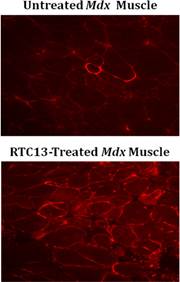
Read-through of nonsense mutations in Duchenne muscular dystrophy.
In 2009, new read-through compounds (RTCs) with promising activity were identified at the University of California, Los Angeles (UCLA) using high throughput screening. This labor-intensive project sought the involvement of different groups and campus resources including the California NanoSystems Institute and the UCLA Molecular Shared Screening Resource center and was led by the laboratory of Dr. Richard Gatti, professor of pathology and laboratory medicine and of human genetics at the David Geffen School of Medicine. The screening of thousands of small molecules identified two promising RTCs. The results were published in the Journal of Experimental Medicine.Read more at: http://www.issnaf.org/news/read-through-of-nonsense-mutations-in-dmd-explained-by-carmen-bertoni.html
UCLA researchers report breakthrough in treatment of genetic muscular disorders
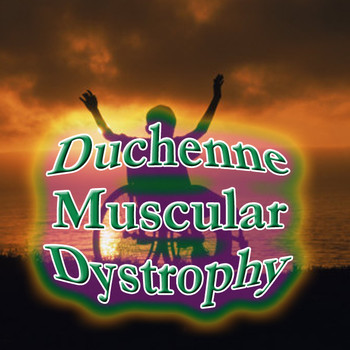
Zoom in
June 28, 2012Muscular dystrophy is a group of genetic diseases in which muscle fibers are unusually susceptible to damage. These damaged muscles become progressively weaker. Duchenne muscular dystrophy(DMD) is a degenerative muscle disease that affects males almost exclusively. It appears in childhood and results in progressive degeneration of voluntary and cardiac muscles; individuals with this condition usually die at a young age. On June 27, UCLA researchers announced that they had identified a new compound that could treat certain types of genetic disorders in muscles such as DMD. They published their findings in the current online edition of the journal Human Molecular Genetics.
Read more at: http://www.examiner.com/article/ucla-researchers-report-breakthrough-treatment-of-genetic-muscular-disorders
The Cutting Edge
Ray of Hope in Fight against Duchenne MD
Scientists at UCLA have identified a new compound that could treat certain types of genetic disorders in muscles. It is a big first step in what they hope will lead to human clinical trials for Duchenne muscular dystrophy (DMD).
DMD is a degenerative muscle disease that affects boys almost exclusively. It involves the progressive degeneration of voluntary and cardiac muscles, severely limiting the life span of sufferers.
In a new study, Carmen Bertoni, Ph.D., assistant professor of neurology, Refik Kayali, Ph.D., a postgraduate fellow in Dr. Bertoni's lab, and their colleagues demonstrate the efficacy of a compound known as RTC13, which suppresses so-called "nonsense" mutations in a mouse model of DMD.
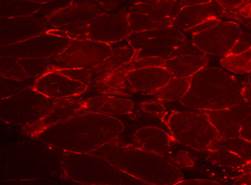
Muscle isolated from a mouse model for DMD that received RT C13 shows protein dystrophin.The findings were published in the online edition of Human Molecular Genetics.
Nonsense mutations are generally caused by a single change in DNA, which disrupts the normal cascade of events that changes a gene into messenger RNA, then into a protein. The result is a non-functioning protein. In the case of DMD, the "missing" protein is called dystrophin.
Drs. Bertoni and Kayali collaborated with the laboratory of Richard Gatti, M.D., professor of pathology and laboratory medicine and of human genetics. Working with the UCLA Molecular Shared Screening Resource facility at the campus's California NanoSystems Institute, the Gatti lab screened some 35,000 small molecules in the search for new compounds that could ignore nonsense mutations. Two were identified as promising candidates: RTC13 and RTC14.
Dr. Bertoni's lab tested RTC13 and RTC14 in a mouse model of DMD. While RTC14 was not effective, RTC13 was able to restore significant amounts of dystrophin protein, making the compound a promising drug candidate for DMD. When RTC13 was administered to mice for five weeks, the investigators found that the compound partially restored full-length dystrophin, which resulted in a significant improvement in muscle strength. The loss of muscle strength is a hallmark of DMD.
The next step in the research is to test if an oral formulation of the compound would be effective in achieving therapeutically relevant amounts of dystrophin protein. If so, planning can then begin for clinical testing in patients and for expanding these studies to other diseases that may benefit from this new drug.Read more at: http://magazine.uclahealth.org/body.cfm?id=6&action=detail&ref=939
Researchers report making a 10-fold improvement in a technology that permanently repairs flawed dystrophin genes, giving a real boost to this therapeutic strategy
A new generation of molecules — peptide nucleic acid single-stranded oligodeoxynucleotides or PNA-ssODNs — can help cells permanently repair errors in the dystrophin gene, fixing the underlying cause of Duchenne muscular dystrophy (DMD), researchers report.
The research group, headed by MDA grantee, Carmen Bertoni, at the University of California Los Angeles (UCLA), published its findings online June 23, 2010, in the journal Human Molecular Genetics.
Although Bertoni’s team and others have been developing gene repair technology for several years, the process showed limited success until development of the PNA-ssODN molecules, which yielded a 10-fold increase in gene repair efficiency.
Read more at: http://quest.mda.org/news/dmd-gene-repair-strategy-takes-big-step-forward
UCLA Researcher Receives MDA Grant to Develop DMD Drug An MDA grant will help develop RTC13, a drug designed to cause dystrophin protein production in DMD-affected muscle fibers

RTC13 enables muscle cells to ignore genetic "stop signs."Read more at: http://quest.mda.org/news/researcher-receives-mda-grant-develop-dmd-drug
Dr. Carmen Bertoni to Receive $75,000 For Duchenne Muscular Dystrophy Research
MIDDLETOWN, Ohio, Nov. 6 /PRNewswire-USNewswire/ -- Patricia A. Furlong, Founding President and CEO of Parent Project Muscular Dystrophy (PPMD), the largest non-profit organization in the United States focused on finding a cure for Duchenne muscular dystrophy (Duchenne), announced today the latest recipient of the End Duchenne Grant Award Program. Carmen Bertoni, Ph.D., Assistant Professor of the Department of Neurology at the University of California - Los Angeles will receive a grant for $75,000, to be used to continue her work with high throughput screening (HTS) to identify chemical compounds that increase the efficiency of oligonucleotide-mediated (ssODN) gene correction in Duchenne muscular dystrophy ("Duchenne") and that can be advanced into a clinical application for the treatment of Duchenne.
For more information, visitwww.parentprojectmd.org.
SOURCE Parent Project Muscular Dystrophy
or at: http://www.prnewswire.com/news-releases/parent-project-muscular-dystrophy-awards-ucla-end-duchenne-grant-69373112.html
UCLA study identifies 2 chemicals that could lead to new drugs for genetic disorders
Discovery could help people with cancer, muscular dystrophy, A-T
UCLA scientists have identified two chemicals that convince cells to ignore premature signals to stop producing important proteins. Published in the Sept. 28 edition of the Journal of Experimental Medicine, the findings could lead to new medications for genetic diseases, such as cancer and muscular dystrophy, that are sparked by missing proteins.
Read more at: http://newsroom.ucla.edu/portal/ucla/ucla-study-identifies-two-chemicals-102506.aspx


